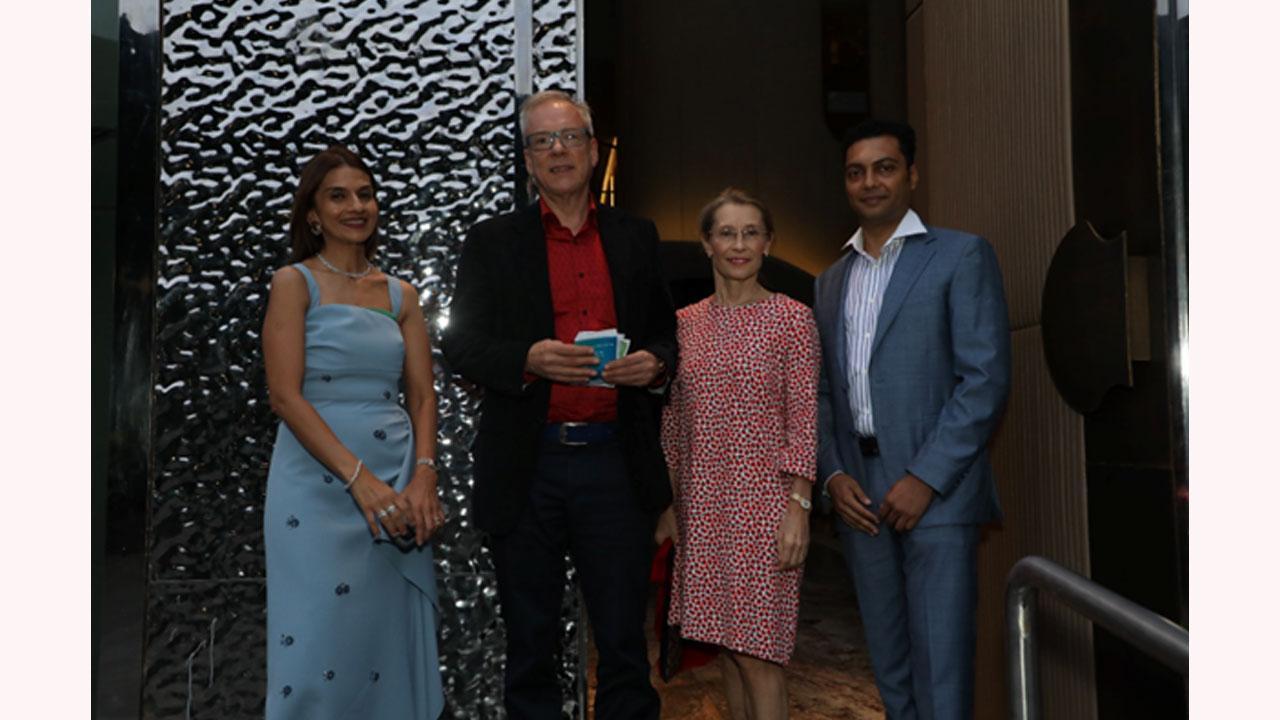Agarkar has now worked for two decades in Mumbai, collaborating closely with parents, children and teachers.

Finland International School
A once-in-a-decade survey aimed at mapping adult skills conducted by The Organisation for Economic Co-operation and Development recently surveyed 160,000 adults across 31 countries and regions-the participants were tested on numeracy, literacy and problem-solving, with the aim of determining whether they were equipped with the basic skills to hold down a job, participate in civic life and thrive in the real world. One country rejoiced at the results-it had posted the highest average score in all three metrics. That country was Finland.
A once-in-a-decade survey aimed at mapping adult skills conducted by The Organisation for Economic Co-operation and Development recently surveyed 160,000 adults across 31 countries and regions-the participants were tested on numeracy, literacy and problem-solving, with the aim of determining whether they were equipped with the basic skills to hold down a job, participate in civic life and thrive in the real world. One country rejoiced at the results-it had posted the highest average score in all three metrics. That country was Finland.
Learning for the real world
Reflecting on these outcomes, Fatema Agarkar, a renowned educationist and mentor, and advisor for Finland International School-Racecourse, observed, “As an educator who is passionate about and creating opportunities for children, concrete trends such as these help us to easily identify the ‘right fit’ for Mumbai’s children. There have been several years of research that have been invested in creating a teaching model that goes beyond mere facts-how children apply the facts they know is what Finnish education places at the heart of their programme of study. That’s why I call it the ‘Common Sense Curriculum’. There is a ‘relevance’ to learning, and making connections with real life examples.” She added that the recent pandemic highlighted the importance of placing emotional wellbeing as a primary focus of education, especially when helping children to navigate complex transitions. This, she said, again makes a strong case for the Finnish approach.
Agarkar has now worked for two decades in Mumbai, collaborating closely with parents, children and teachers. Her experience has only confirmed her belief that the Finnish approach allows children to progress with the right combination of academic rigour and life skills as well as sports, creative, performing and theatre arts, and IT. Importantly, it makes them happy learners. “The real difference is that the Finnish system focuses on children progressing in a manner that makes them well-rounded and emotionally secure learners. It lays down a strong foundation for lifelong learners who go on to become problem-solvers and creators. For these reasons, I believe the Finnish pedagogy is refreshingly practical, thorough and complete,” she elaborated.
Holistic and wholesome
Sharing how Finland International School implements this approach in its curriculum, Agarkar shared, “A school’s goal must be to provide a child the necessary skills and knowledge to decode the nuances of the world around them. This conceptual understanding helps them define what they want to learn further, enjoy most. Without scientific, well-researched and age-appropriate learning outcomes, the desired progression for children will not happen. This is why a well-defined programme of learning-from toddlers to Grade 12-forms the basis of the school year. These plans are further customised basis the interests and prior knowledge of each child.”
“Finland has one of the best education system in the world. Unlike traditional Indian schools that focus solely on content learning and memorisation, or rote learning, we focus on skill development and concepts in early and primary years. Further, we have combined Finland’s stress-free environment with Indian culture to create our own Findian ecosystem. Here, Finnish teachers work alongside Indian teachers to best address the learning needs of the children. Although we don’t have traditional exams or assessments, the children are accessed on a daily basis. This ensures continous learning throughout the year,” added Shashank Goenka, founder and managing director of Finland International School.
For the children, of the children
But what does a customised curriculum look like, in the real world? At Finland International School, instead of a standardised approach, the school offers a platform for children to hone their skills and knowledge, benchmarked to age-appropriate milestones. The underlying rationale is the realisation that a child’s enthusiasm for learning is sparked by exposure-whether horse riding, tennis, football, basketball, table tennis, gymnastics, swimming, music, dance, theatre and other interests. All of these are blended together, along with disciplines such as home economics, textiles, woodwork and coding, to create active learners. “A child who is happy is motivated to build research skills and independence, also taking ownership for their learning, and is accepting of the fact that certain areas need support and help. They enjoy what they love, work on what they do not like, and keep acquiring skills. This navigation until the time they graduate school instils in them key life skills that help them to transition,” she said. Under Agarkar’s stewardship and carrying forward the Finnish approach, the functions as an edu-partner to families. This automatically changes the way learning is approached.
 Subscribe today by clicking the link and stay updated with the latest news!" Click here!
Subscribe today by clicking the link and stay updated with the latest news!" Click here!














